Kittens, like children, learn how to behave appropriately at a young age—and during this process, they might often misbehave. Kittens are constantly learning about the world around them and acquaint themselves with good behavior through positive and negative enforcement. If you're training your kitten to stop misbehaving, you'll have to address and correct the bad behaviors with direction and discipline.
Patience is key when training a kitten, and we're sharing tips for correcting common misbehavior, like scratching, biting, and jumping.
Why Do Kittens Misbehave?
Kittens are like babies. They are constantly learning about the world around them and what behavior is acceptable and what isn't through positive and negative reinforcement. When your kitten misbehaves, it's not trying to be bad. It's simply learning how to behave.
Most kittens are happy to use a litter box and scratching post. Sometimes kittens are unwilling or unable to do one or the other. Occasionally, they start using the litter box and scratching post properly and then suddenly stop doing so.
Much of kitten or cat discipline involves troubleshooting to discover the reason for the undesirable behavior and then correcting the situations that caused it.
Scratching and Clawing
Kittens and cats need their claws, and they need to scratch to keep their claws healthy. The trick is to redirect them from furniture and other objects to more appropriate surfaces for them to sharpen their claws. The key is teaching the kitten to avoid destructive scratching.
Litter Box Training
Most kittens readily adapt to a litter box, especially if they were raised with a mother cat. Otherwise, it's usually easy to train a kitten to use the box. Make sure the box is easily accessible, filled with good-quality litter, and cleaned at least once a day. Immediately after a meal, place your kitten in the box. You may have to demonstrate by guiding its paw for a few scratches in the litter, but the kitty will quickly get the idea. Chances are, under proper circumstances, your kitten will not make mistakes and learn to use the box regularly. In the rare event your kitten doesn't take to the box, poor litter box maintenance may be the cause.
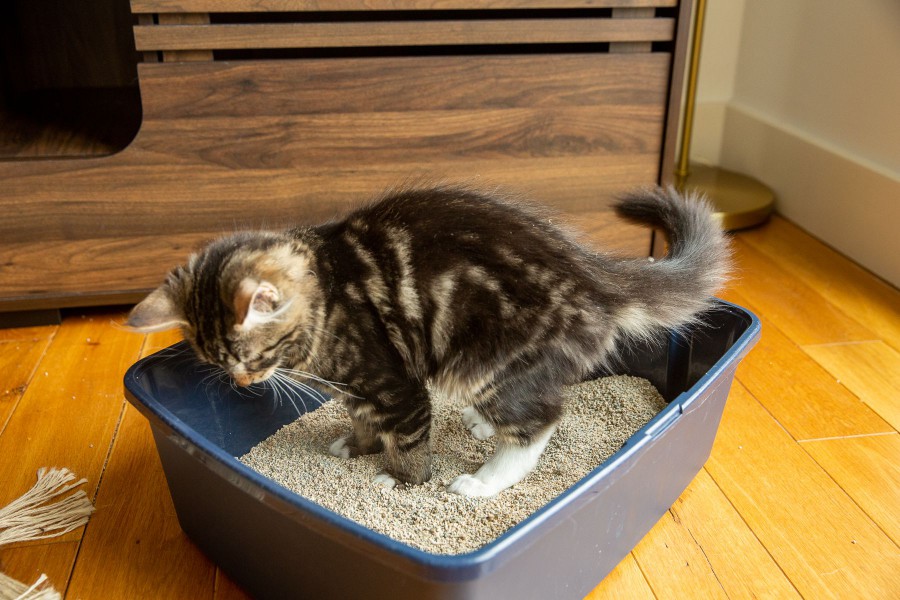
The Spruce / Phoebe Cheong
Chewing and Biting
Like human babies, kittens examine everything with their mouths, especially when they're teething. As with toddlers, it's important to keep harmful items out of kittens' reach. Kittens love to play fight, and if other cats aren't around to accommodate them, they'll settle for the nearest human hand or ankle, especially if you've encouraged this form of play early on. They also might chew on houseplants if they are within reach.
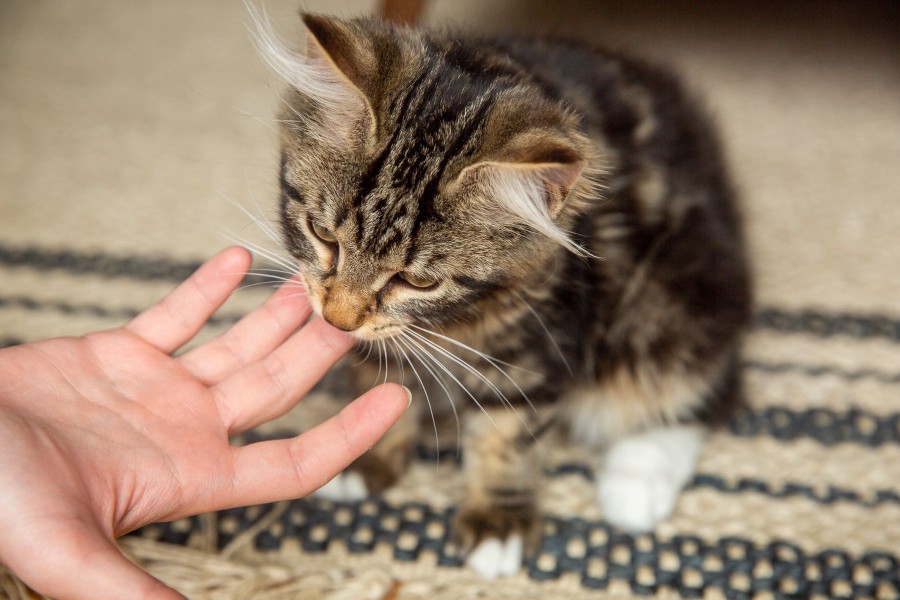
The Spruce / Phoebe Cheong
Jumping
Kittens love heights, and many are expert jumpers. They can hurl themselves upward with little notice and seemingly little effort. Problems occur when they frequently jump on a tabletop or a countertop that you prefer they avoid.
Nighttime Behavior
Cats and especially kittens can exhibit overactive behavior at night. Most cats will be awake and active at night, but the key is teaching them to leave you alone and go back to sleep.
Attention Seeking Disobedience
Some kittens are especially rambunctious. While kittens are expected to be curious and playful, some can escalate these traits to bad behavior. They are likely seeking attention from their owners or are bored and under-stimulated (or both).
How to Discipline a Kitten and Stop Bad Behavior
There are numerous humane effective techniques for expressing your displeasure with a cat. It's always wise to check with your vet to make sure there isn't a health issue causing the bad behavior. One simple option is to keep a spray bottle filled with water handy. This can help when you see bad behavior in action. Give your kitten a little squirt to discourage the behavior.
Provide Scratching Posts
To stop your cat from scratching furniture or other places it doesn't belong, provide desirable scratching surfaces. Scratching posts vary in price and style and provide a selection of scratching surfaces for your kitten. One popular and inexpensive option is a corrugated cardboard model. Adding a small amount of catnip to the scratch post can make it more attractive for your cat. For a variety of healthy scratching options, offer as many scratchers as you can afford and/or have room for.
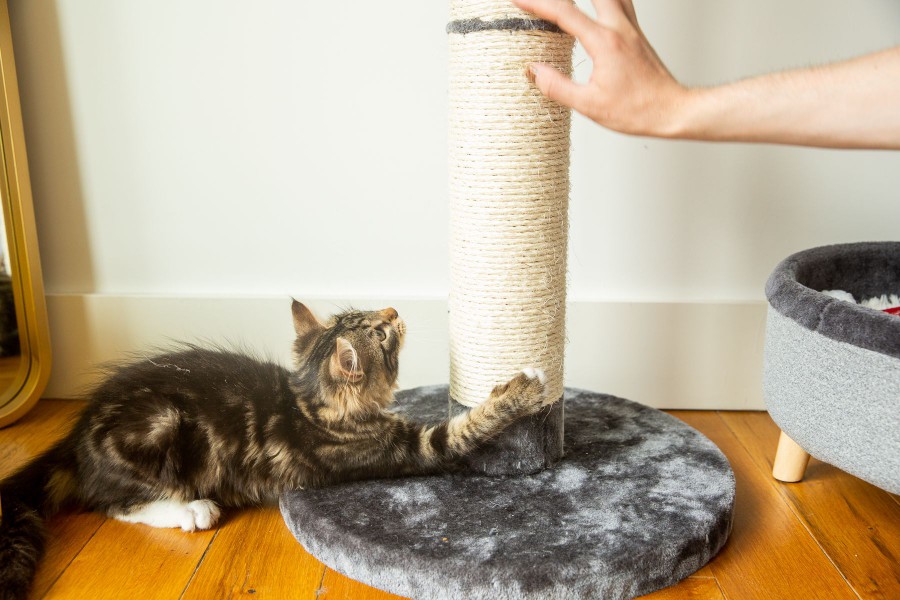
The Spruce / Phoebe Cheong
Manage Your Kitten's Claws
While harmful to your kitten's health to have it declawed, it's a good idea to trim those needle-sharp claws from time to time. Not only will this make destructive scratching less of an issue, but it will also lessen the chance that you'll be scratched by an energetic feline playmate. Another option is to use plastic nail caps. They are easy to apply and do not interfere with the normal extension and retraction of your cat's claws.
Keep the Litter Box Clean
Because litter box avoidance is a major reason why people surrender their cats to shelters, it's important to provide your cat with an immaculately clean litter box. Another option is to spray your kitten's litter box with an attractive scent, such as Cat Attract, which is sold at pet stores. Provide multiple boxes for your cat. You also may need to try several brands and types of litter. Some cats avoid covered litter boxes, while others prefer the privacy they provide. Be sure there are no underlying health issues, such as a urinary tract infection, that may be causing your kitten to miss the litter box. Your veterinarian should be able to easily rule out this and other illnesses with a simple urinalysis.
Avoid Play Fighting
While play fighting with your kitten can be fun, it can escalate. Kittens learn to inhibit the severity of biting and scratching from their litter-mates and mothers. If they bite or scratch too hard, they will be reprimanded with a growl or hiss and an equally rough swat or bite right back. If your kitten was separated from its family too early, it may not have learned proper play-fighting behavior. Consider wearing gloves, using toys instead of hands, or simply walking away if your kitten gets too rough. This will help the cat learn to avoid biting or scratching, even in play. Remove tempting plants or put them in an area that is off-limits to your kitten.
Set Boundaries for Jumping
Ideally, you'll have rules in mind for your kitten before it starts leaping. Which counters, couches, and shelves are fair game? Which are off-limits? A simple training method involves praising and petting your kitten when it leaps onto acceptable surfaces while scolding and removing it from unacceptable surfaces. The spray bottle can help train your kitten to stay off specific surfaces. Double-sided sticky tape can discourage some cats from jumping as they dislike the feel of the tape on their paws. Providing alternative climbing surfaces, such as a cat tree, may also help reduce the chance of your cat jumping on your countertops.
Daytime Activity
Plan on some interactive play sessions with your kitten in the evening. Keep playing until your kitten seems to tire. Feed them a bigger meal before bedtime; most cats sleep after eating. Keep your cat busy during the day with playful and challenging toys or puzzles.
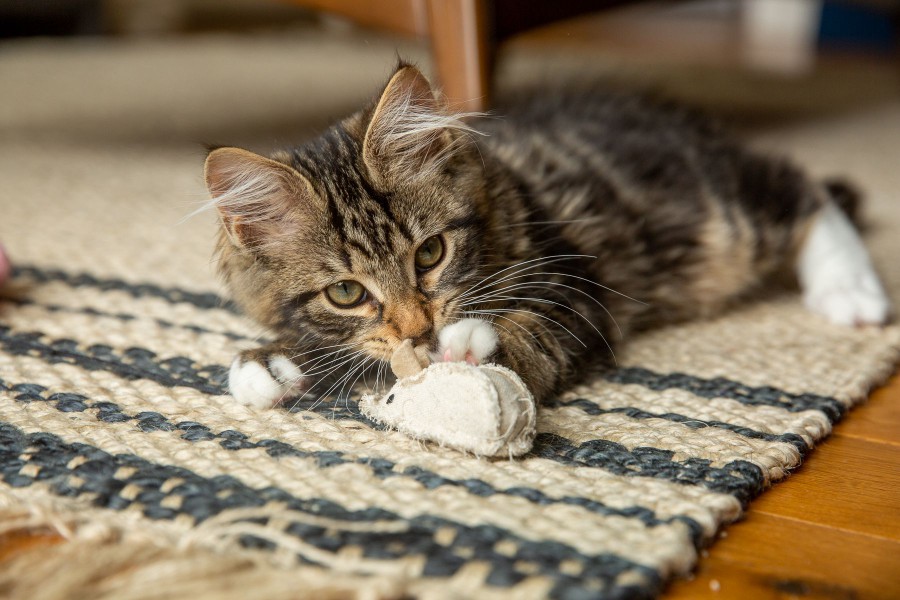
The Spruce / Phoebe Cheong
Stopping Attention-Seeking Disobedience
Always play with your kitten every day. Some extra quality time may help stop the bad behavior. Disobedient cats may also be bored, so provide stimulation and exercise. Finally, praise the cat when it is being good. Use kind words, gentle petting, and treats to reinforce good behavior.
Related Article

Do Cats Know Their Own Names?
Have you ever wondered if cats know their names? Unlike dogs, cats are not known for coming when ca
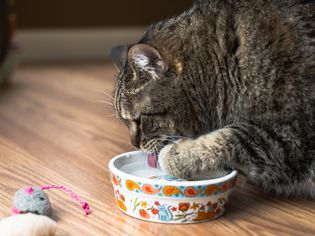
Why Does My Cat Keep Knocking Over Their Water Bowl?
Cats and kittens have a reputation for hating water. Most cats avoid getting wet if at all possible

How to Stop Cats From Pooping on Rugs
Litter-trained cats may be trained to do their business in the litterbox, but if your cat is poopin

Best Diabetic Cat Foods and Tips on Feeding
Diabetes is a common disease in cats that can lead to many other health problems. Fortunately, ther

Can Cats Eat Cheese?
Cheese is a staple food item in most homes. In fact, it’s so commonplace, some pet owners may use

Why Is My Cat Vomiting Blood?
It is not uncommon for cats to throw up the occasional hairball, however, if your cat were to ever

Jaundice in Cats
Jaundice, also known as icterus, is a symptom of more serious diseases that causes parts of your ca

Balinese: Cat Breed Profile, Characteristics & Care
The Balinese cat breed is known for striking beauty, intelligence, and a friendly, inquisitive, and
About FleaFree Feline
We are a premier digital platform committed to delivering high-quality content to our readers. Our mission is to provide accurate, reliable, and engaging information that adds value to our audience's daily lives.
Our team consists of experienced content creators and subject matter experts who uphold the highest standards of professionalism. In an era of information overload, we curate content with care, ensuring our users receive only the most relevant and trustworthy information.
Beyond just reporting facts, we focus on depth and context. Through expert analysis, comprehensive research, and clear presentation, we help our audience gain meaningful insights and make informed decisions.
We take pride in being a trusted information source for our growing community of readers. Our user-first approach means we continuously adapt to provide content that meets our audience's evolving needs and interests.
Innovation and excellence drive everything we do. We're committed to improving our platform and services to deliver the best possible experience for our users.

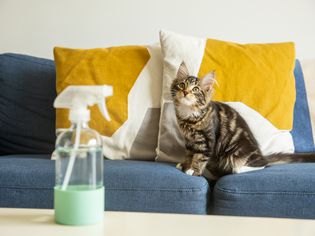
Comments on " Reasons Kittens Misbehave and How to Discipline Them" :